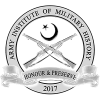Importance of Military History
Every Pakistani citizen is entitled to know our country’s military history – both pre- and post-Partition – and that of the Pakistan Army. This imparts a sense of ownership for all those past soldiers who fought and died for the country. It also enables citizens to be more aware about a relatively lesser known subject, of which small parts are known in passing, while much remains absent from the public eye. The absence of a military history institute in the past, will now be more than made up by the setting up of AIMH.
Any serious profession requires a very strong theoretical grounding based on a reservoir of past experience in that field. Military leaders need a sound grounding in the profession of arms, which comes through the study of military history. Knowledge gained becomes part of the officer’s professional database. A military leader must understand the nature of war and the face of battle, which can only be done by studying the planning and conduct of war through the ages. A commander going into a certain type of operation, in a given environment and terrain, must be knowledgeable about the given historical context. Military history provides ample material on past experience in the same context. Learning from the mistakes of others, requires the study of military history. Without it, we learn from our own mistakes.
Army officers are leaders more than anything else, and the study of military history gives them a good insight into the ingredients of good (and poor) leadership at all levels. In this manner, it directly contributes to leadership grooming. An officer’s vision of good leadership, irrespective of its source of inspiration, can only be validated if he knows what impact that sort of leadership created in the past. Military history provides that input.
While military history contributes to leadership grooming of commanders, it is equally important for staff officers. While tackling given problems, they need to analyse them and offer high-quality recommendations. Solving many of these staff problems requires a correct frame of reference, or context, which in turn depends on a background knowledge of military history.
Principles of war, which must essentially be understood by officers, can only be absorbed by studying military history. You may understand a principle of war, and even find it logical, but you will only have conviction in it as a practitioner once you learn its efficacy via its historical context. The dry and bookish theories of warfare come to life and are animated by reference to history.
The rationale for current military tactics, firepower, logistics, weapons, equipment and organisational structures can only be understood in a historical context, by examining their evolution through the study of military history.
A study of past campaigns challenges the mind to grasp the relationship of time, space and relative strength, and the correlation of various other factors, thus sharpening intellectual skills directly related to the profession.
In an immediate sense, the study of recent and contemporary military history helps prepare for future operations – capitalising upon experience and avoiding repeated mistakes.
Muslim military history is a source of motivation and pride for the officers and soldiers, and part of the Army’s shared sense of identity.
A study of the Army’s own military history instils awareness and appreciation of the military achievements of our veterans, again part of the Army’s sense of identity.
A study of the adversary’s military history develops a deep understanding of his mindset and psyche, strategy and tactics, and prepares us all the better to face him in battle. It also instils respect for the adversary’s strengths, and a keen awareness of his weaknesses.
By studying a common body of military historical literature, the officer corps develops a shared historical frame of reference, which promotes synergy, harmony of thought and a feeling of brotherhood based on a common historical heritage.

